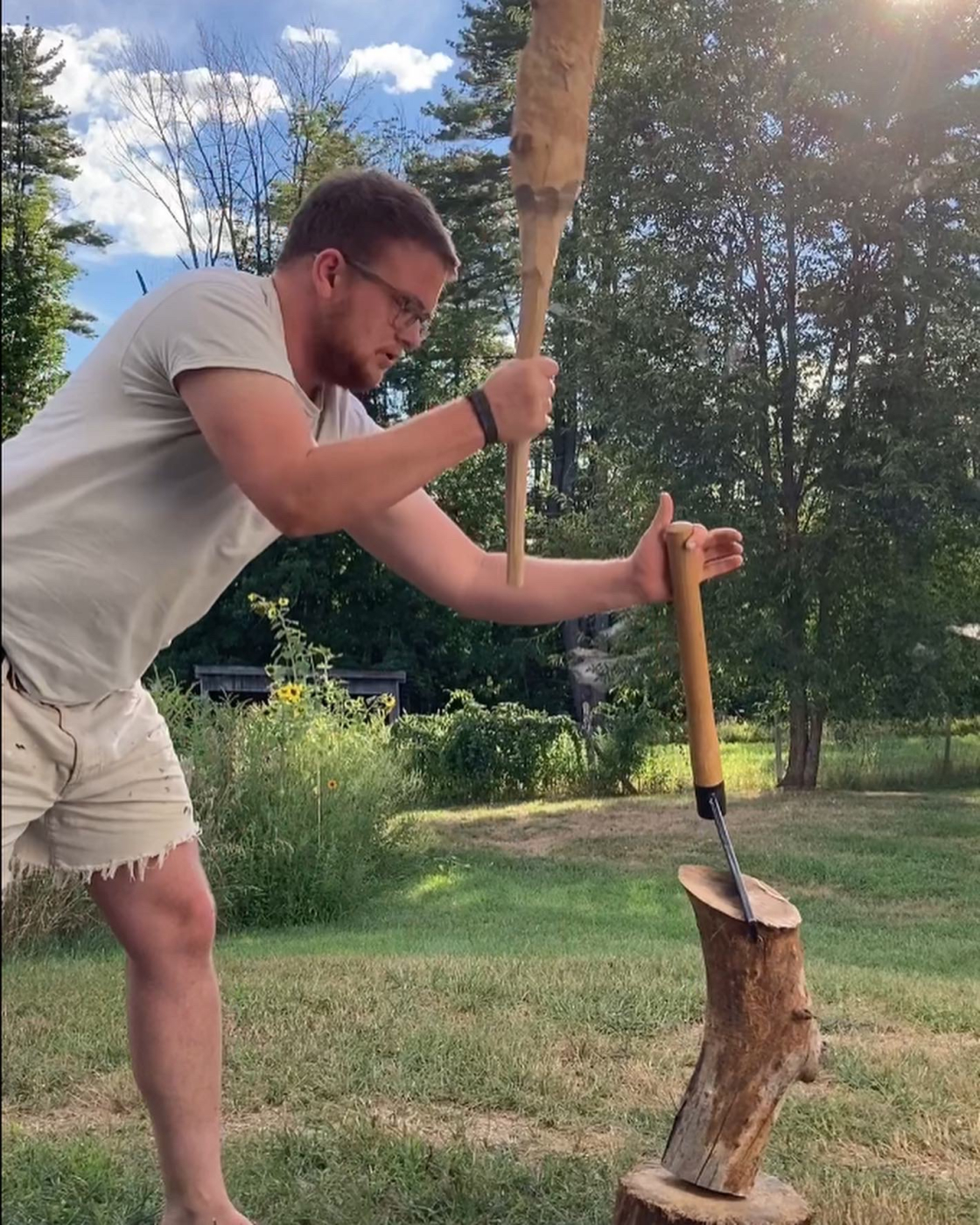We may receive a commission when you use our affiliate links. However, this does not impact our recommendations.
 We’re interviewing makers from across the country. Today we’re featuring Lee Scheffey, a spoon carver from New Hampshire.
We’re interviewing makers from across the country. Today we’re featuring Lee Scheffey, a spoon carver from New Hampshire.
How did you get started woodworking? Who were your mentors?
I came to green woodworking by necessity, with a need to ground myself in my humanness and the interconnected expansiveness found in wood. As a child, I was always curious to create figures and pleasing shapes out of wood and clay. As I grew into adulthood, living amongst concrete and plastic structures, I ached to create rather than consume and turned to wood carving, because all you need is a knife and some wood. Green woodworking is one of the most accessible crafts — you do not need a bench or work room, and can do a great deal of work out in the field. For makers who come from historically excluded groups of people who do not fit into the traditional exclusionary boundaries of the trade workspace, green woodworking provides an entry point. As a trans man myself, I had never felt safe in traditional woodworking environments, but now with a knife, some wood, and a book or two, I began to teach myself the trade in the privacy and safety of my home and the woods. I learned to sharpen my tools, to mind the water that filled the cells of the wood I carved, and to forage for fallen trees on walks and hikes. I began to construct networks of friends and neighbors who would let me forage on their land. I learned to carve elegant and useful wooden tools from discarded wood and learned to trust myself and my choices. For me, green woodworking is a return to self, over and over, with each axe blow.
 What do you think is your best or favorite work? What kind of work do you do the most?
What do you think is your best or favorite work? What kind of work do you do the most?
My best work comes out in my spoons. It is where I started, and where I learned to trust myself as a woodworker. Beech wood spoons in particular fascinate me – Beech is a common wood in my part of the world, with lean, muscley branches that twist and turn to make strong, tenacious spoons. And, while beech gets rock hard pretty darn fast, it is not a particularly finicky wood—with a tight grain structure, beech finishes with nice crisp lines that age beautifully.
What draws me to beech is how much the wood itself dictates the spoon’s form. Beech remembers the confidence it had as a branch and it has lost none of its determination and independence in this new spoon form. These are spoons that never forget they were trees, and will bring the bend and sway of tree branches into the stirring of soup and mixing of dough.
 What advice would you give to someone that wants to start woodworking or pursue it as a profession?
What advice would you give to someone that wants to start woodworking or pursue it as a profession?
For those of you looking to jump into the spoon carving world and the green woodworking world at large, my advice would be this: use what you already have; watch the follow through of any edge tool you use to make sure it won’t connect with flesh; learn to sharpen your tools and to stretch and mind your body as you do repetitive and powerful body motions; seek and explore what excites you — and learn to make that! Truly – all you need is a knife and some wood.
The world needs creation over consumption. Get to making!!
 What’s your best hands-on tip or woodworking technique?
What’s your best hands-on tip or woodworking technique?
The most exciting and versatile woodworking technique I have come across is using your body as a clamp and work-holding device.
The human skeletal structure is dynamic and very strong. I have carved chair parts by interlocking my legs around the undercarriage. I use my forearm bones to clamp a longer bowl to a flat surface while doing finishing cuts. I often use the length of my arm bones as safety stops with different knife strokes. I use the weight of my body to push a gouge through curved cuts in bowls and trays.

Is there anyone you’d like to shout-out or recommend we follow? Who inspires you? (Doesn’t have to be woodworking related, either.)
See more of Lee’s work on Instagram @lee.spoons and their website: www.leespoons.com
 This interview was lightly edited for clarity.
This interview was lightly edited for clarity.
Here are some supplies and tools we find essential in our everyday work around the shop. We may receive a commission from sales referred by our links; however, we have carefully selected these products for their usefulness and quality.









